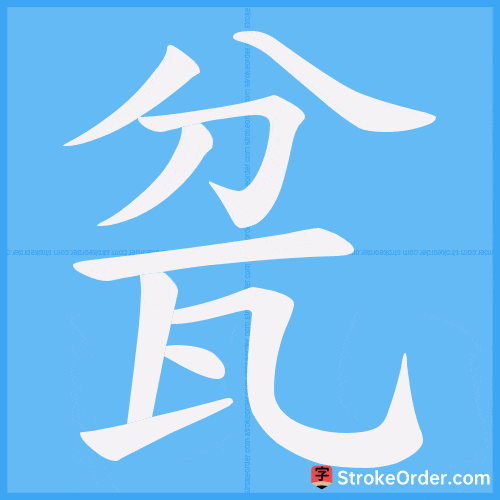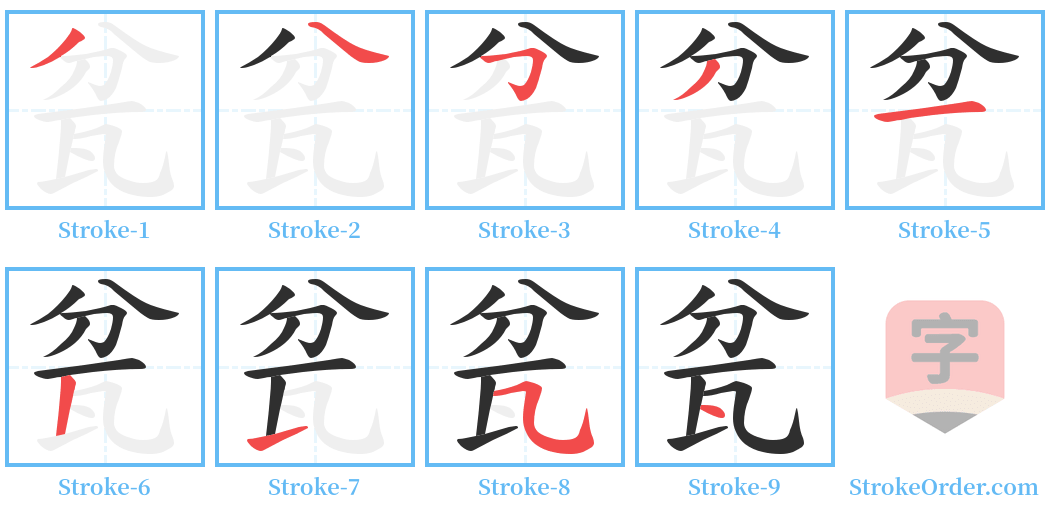瓫 Stroke Order
Animated Stroke Order of 瓫

Stroke Order Diagrams for 瓫

Information of 瓫
Pinyin
pén
Radical
瓦
Strokes
8 strokes
Usage
★★
Definition
瓫 (Tán)
1. Ancient form of "盆" (pén), which means basin or bowl.
古同“盆”。
2. An ancient term for "湓" (pén), meaning water overflowing.
古通“湓”,水溢出。
3. A heavy and muddy sound or noise.
重浊的声气。
4. A surname.
姓。
Additional Notes:
- A "盆" (pén) is typically round, with a larger mouth and smaller bottom, deeper than a plate. The explanation "盆,盎也" from "说文" is a clear misinterpretation.
- A vessel for holding items or for washing.
- Examples include:
- 炭盆 (tán pén) - fire basin for burning charcoal
- 脸盆 (liǎn pén) - wash basin
- 大铜盆 (dà tóng pén) - a shallow, wide container, usually round
- 盆吊 (pén diào) - a brutal execution method involving hanging prisoners upside down
- 盆冤 (pén yuān) - a metaphor for being wrongfully accused
- 盆口精熟 (pén kǒu jīng shú) - expert in gambling techniques
- In ancient times, it was a measuring tool with a capacity of twelve dou and eight sheng in the old system.
古代量器。容量为古制十二斗八升。
- It was also an ancient cooking utensil.
古炊器。
- The unit of measurement for the volume of what a basin can hold was set at twelve dou and eight sheng in ancient standards.
古代计算量盆所盛数量的单位,古制十二斗八升为一盆。